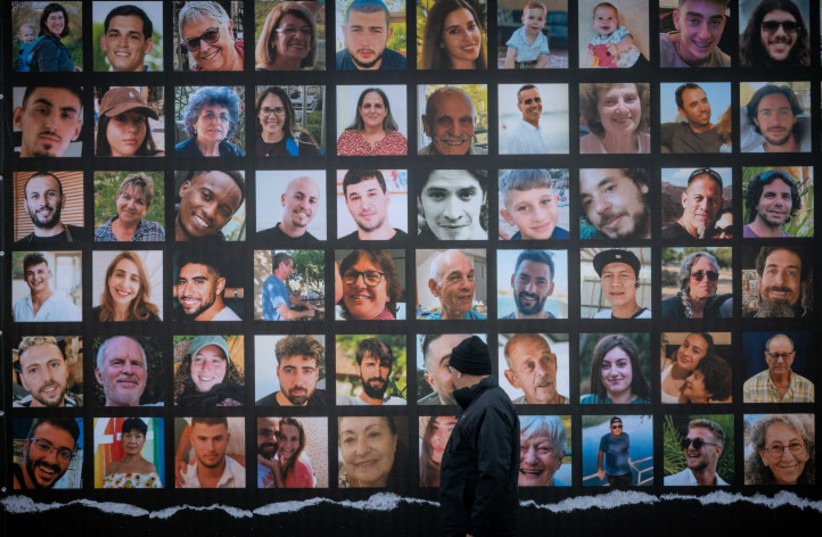Israelis are split on whether the most important outcome of the Israel-Hamas War is to secure the release of the hostages or whether it is to achieve victory over Hamas, according to a recent “Panels” survey commissioned by the "Mothers' March."
The polling, which was conducted among Israelis on Tuesday and Wednesday of this week, sought to examine the stances of the Israeli public on issues related to the hostages and the war.
Asked which is more important, obtaining the release of the hostages held by Hamas or achieving victory in the war against Hamas, a slight majority of 46.6% responded that it was more important that the hostages be released.
Just shy of that proportion, 44.8% said that the more important thing was winning the war against Hamas.
Military pressure as the best way to free the hostages
Despite the schism, however, there was agreement between both groups that the best way to secure the release of the hostages was by exerting military pressure on Hamas until it agreed to acceptable terms for the release of its captives.

More than four-fifths of respondents (81.5%) said putting military pressure on Hamas was the best way to achieve the hostages' release. Only 10% said the best way was to cease military activities and attempt to negotiate with Hamas.
Similarly, despite that slight preference for the freedom of the hostages over winning the war, a large majority of Israelis affirmed that Israel should not agree to all of Hamas’s demands in order to free those hostages.
Specifically, while nearly three-quarters (72.9%) said Israel should not agree to all of Hamas's demands, only 12.4% said that should.
An additional majority of respondents (70.5%) said Israel should not agree to withdraw IDF troops from Gaza to obtain the release of the hostages compared to 18.5% who said it should.
Nearly four-fifths (79.4%) of respondents said Israel should not agree to allow Hamas to remain in power to obtain the release of the hostages. Just 8.1% said it should.
Again, despite a slight majority saying that the primary goal of the Israel-Hamas War is to secure the release of the hostages held by Hamas, a larger proportion (47.2%) said that Israel shouldn’t agree to a long-term ceasefire in order to achieve this goal.
In opposition, 38.7% said that it should make such an agreement.
Most respondents (84.3%) noted that a long-term ceasefire with Hamas would make it very or somewhat difficult to achieve military victory against Hamas. Only 9.6% of respondents said a long-term ceasefire would not make it particularly difficult or easy to achieve victory.
With a strong majority of 71.9%, most survey respondents said that a long-term ceasefire implemented for the sake of securing the release of the hostages would result in more casualties among soldiers when the hostilities once again resume. Only 7.9% disagreed.
